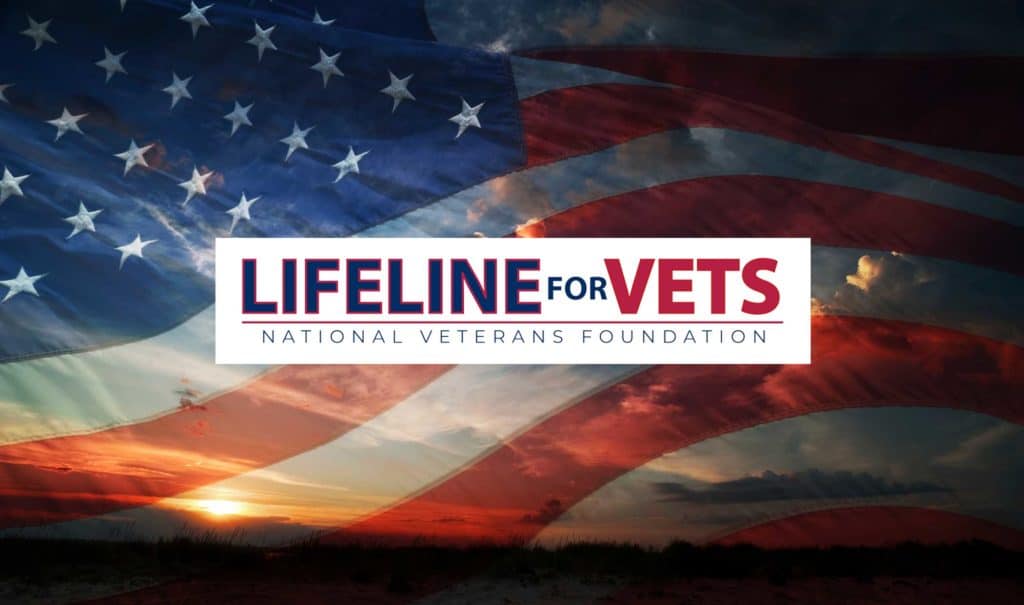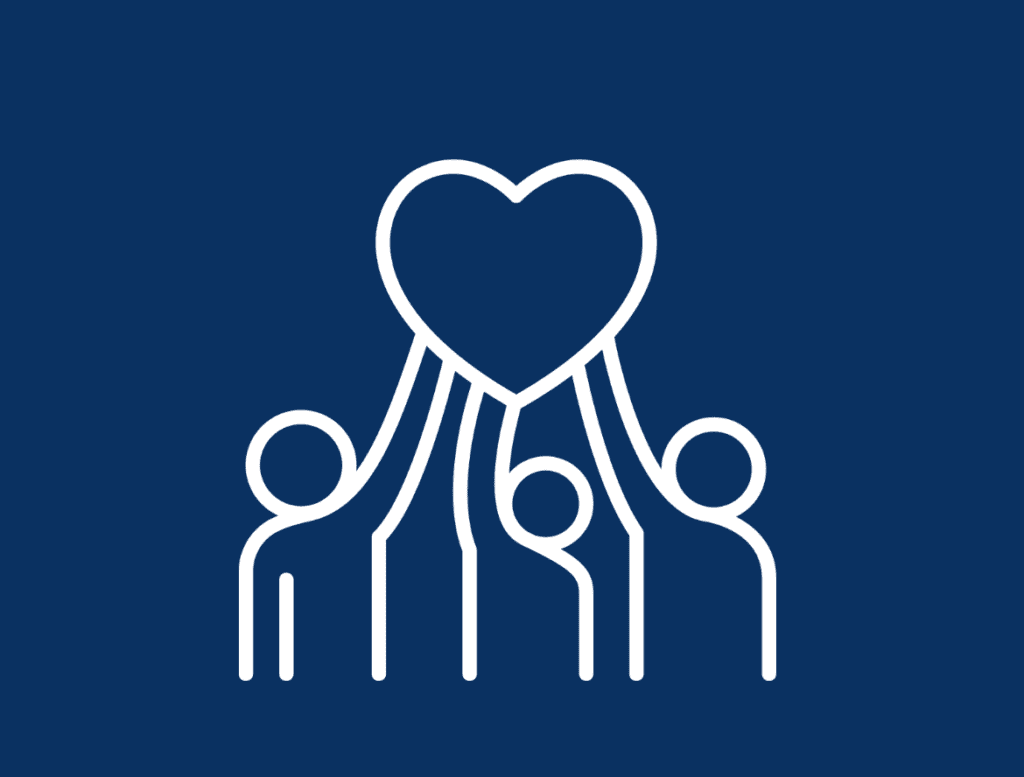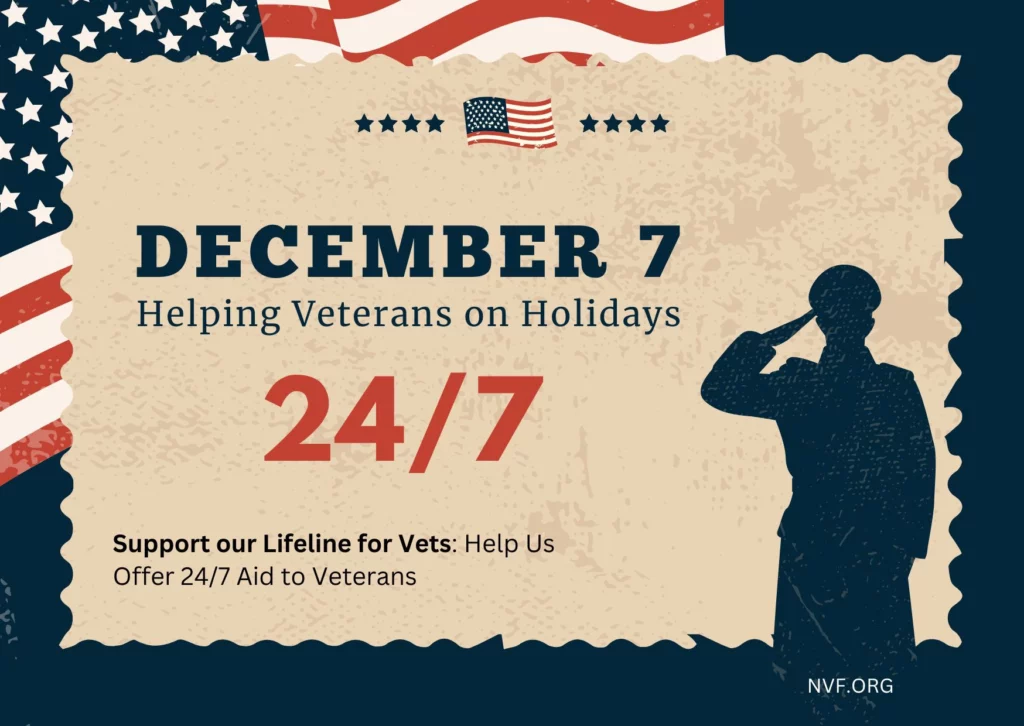Buddy Check Tips: Supporting Veterans with Compassion and Care
Consejos de Buddy Check: cómo apoyar a los Veteranos con compasión y atención
The Lifeline For America’s Veterans
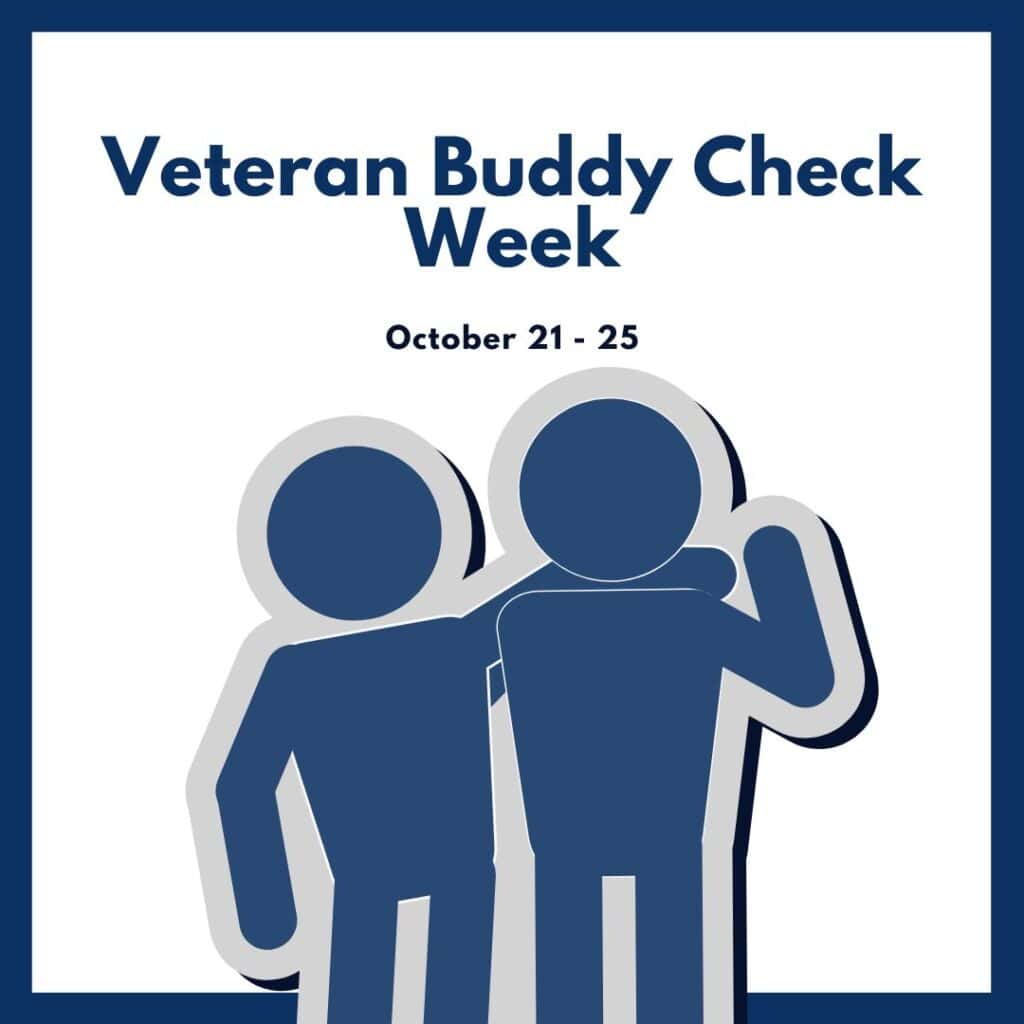
In honor of Buddy Check Week, happening from October 21st to 25th, we come together to emphasize the vital importance of connection in supporting the mental health and well-being of our Veterans. This initiative, launched by the Department of Veterans Affairs in 2023 in response to the 2022 STRONG Veterans Act, builds on the impactful programs of the American Legion’s Buddy Check and the Veteran Wellness Alliance.
Veterans face unique challenges, and staying connected can make all the difference. Conducting regular Buddy Checks is a practical way to offer support, reduce isolation, and provide the compassion Veterans need to thrive. With the increasing number of calls for help and the complexities surrounding mental health, now more than ever, we must meet our Veterans with care and understanding.
This guide offers practical tips on how to conduct meaningful Buddy Checks:
En honor a la Semana de Buddy Check, que se llevará a cabo del 21 al 25 de octubre, nos reunimos para enfatizar la importancia vital de la conexión para apoyar la salud mental y el bienestar de nuestros veteranos. Esta iniciativa, lanzada por el Departamento de Asuntos de Veteranos en 2023 en respuesta a la Ley STRONG Veterans Act de 2022, se basa en los programas impactantes de Buddy Check de la Legión Estadounidense y la Veteran Wellness Alliance.
Los veteranos enfrentan desafíos únicos y mantenerse conectados puede marcar la diferencia. Realizar Buddy Checks regulares es una forma práctica de ofrecer apoyo, reducir el aislamiento y brindar la compasión que los veteranos necesitan para prosperar. Con el creciente número de llamadas de ayuda y las complejidades que rodean la salud mental, ahora más que nunca, debemos atender a nuestros veteranos con cuidado y comprensión.
Esta guía ofrece consejos prácticos sobre cómo realizar Buddy Checks significativos:
Nota: Utilizamos tecnología para ayudar a traducir este documento.
Si detecta algún error, por favor use este enlace y lo corregiremos
Note: We used technology to translate this document.
If you see an error please submit them to this link.
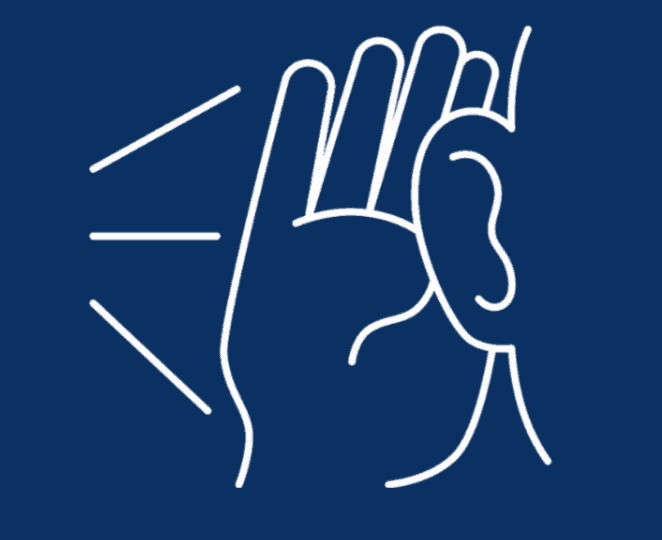
1. Listen to a Veteran
Active listening means fully focusing on what a Veteran is saying. This creates a safe space for them to share. Listen for tone, pace, and emotions, especially since visual cues aren’t available over the phone.
Active Listening Tips:
- Maintain eye contact, even over video.
- Avoid interrupting and reflect back what you hear.
- Ask open-ended questions: “Can you tell me more?”
- Use empathy: “That must have been challenging.”
1. Escuche a un Veterano
Escuchar activamente significa concentrarse por completo en lo que dice un veterano. Esto crea un espacio seguro para que comparta. Escuche el tono, el ritmo y las emociones, especialmente porque las señales visuales no están disponibles por teléfono.
Consejos para escuchar activamente:
- Mantenga el contacto visual, incluso a través de un video.
- Evite interrumpir y refleje lo que escucha.
- Formule preguntas abiertas: “¿Puede contarme más?”
- Utilice la empatía: “Eso debe haber sido un desafío”.
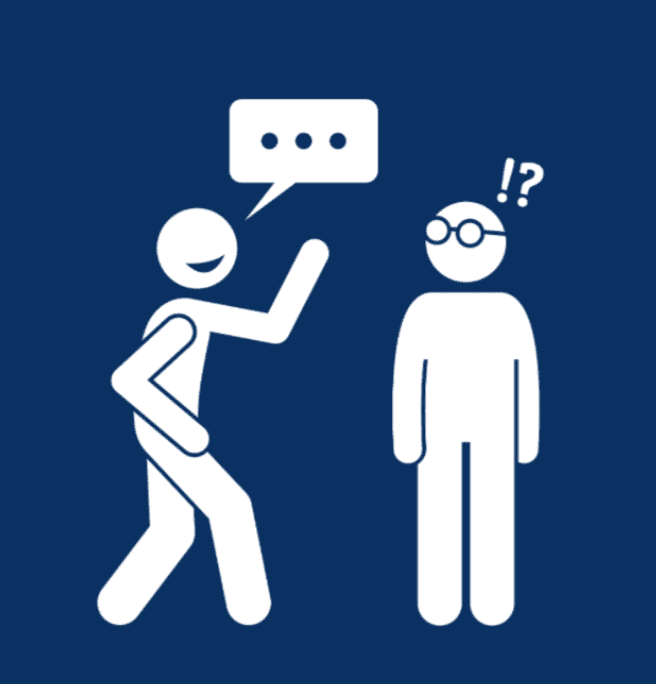
2. Know How to Approach
Approaching with sensitivity sets the right tone. Start with a soft, respectful inquiry: “I heard you served. I’d love to hear your story.” Avoid intrusive questions like, “Did you kill someone?”
Approach Tips:
- “How have you been since you got back?”
- “I’m here if you ever want to talk.”
- “Where did you serve?”
- Build trust by identifying shared experiences.
2. Sepa cómo acercarse
Acercarse con sensibilidad establece el tono adecuado. Comience con una pregunta suave y respetuosa: “Escuché que sirvió en el ejército. Me encantaría escuchar su historia”. Evite preguntas intrusivas como “¿Mató a alguien?”
Consejos para acercarse:
- “¿Cómo ha estado desde que regresó?”
- “Estoy aquí si alguna vez quiere hablar”.
- “¿Dónde sirvió?”
- Genere confianza identificando experiencias compartidas.
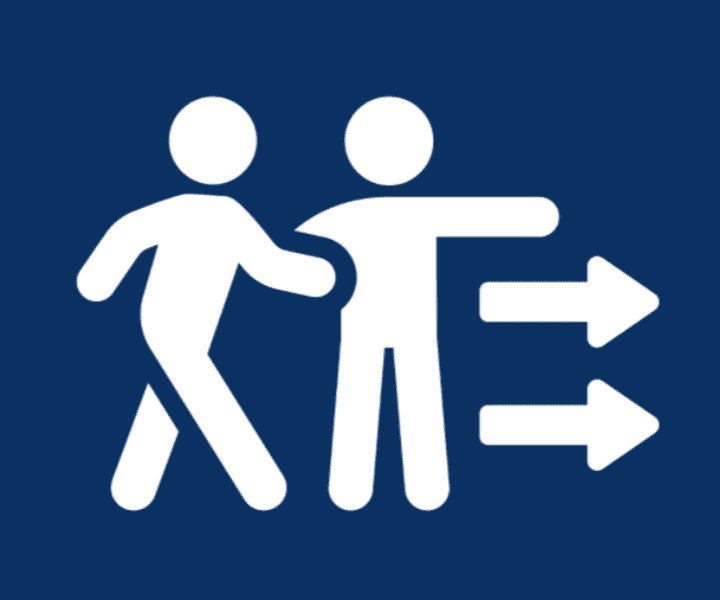
3. Let Them Take the Lead
After starting the conversation, let the Veteran decide what they want to share.
Tips to Let Them Lead:
- “I’m here to listen to whatever you want to share.”
- “Take your time. There’s no rush.”
- “I’m here, even if you just want to sit in silence.”
3. Déjeles tomar la iniciativa
Consejos para dejarlos tomar la iniciativa:
- “Estoy aquí para escuchar lo que quieras compartir”.
- “Tómate tu tiempo. No hay prisa”.
- “Estoy aquí, incluso si solo quieres sentarte en silencio”.

4. What If They Don’t Want to Be Checked On?
Respect their wishes if a Veteran doesn’t want to talk. Gently let them know you’re there when they’re ready. Move on to someone else who may need support.
Tips:
- “I understand. Just know I’m here when you’re ready.”
- If a Veteran is aggressive, stay calm and don’t take it personally. Remind them of available resources, like the NVF Lifeline for Vets.
4. ¿Qué pasa si no quieren hablar?
Respete sus deseos si un Veterano no quiere hablar. Hágale saber con delicadeza que estará allí cuando esté listo. Pase a otra persona que pueda necesitar apoyo.
Consejos:
- “Lo entiendo. Solo quiero que sepa que estoy aquí cuando esté listo”.
- Si un veterano se muestra agresivo, mantenga la calma y no lo tome como algo personal. Recuérdele los recursos disponibles, como la línea de ayuda para veteranos de la NVF.

5. What to Do If a Veteran Communicates They Are Suicidal
If a Veteran expresses suicidal thoughts, immediately provide the NVF Lifeline for Vets at 888-777-4443 or nvf.org. Offer compassion and resources to meet them where they are.
5. Qué hacer si un veterano comunica que tiene pensamientos suicidas
Si un veterano expresa pensamientos suicidas, comuníquese de inmediato con la línea directa para veteranos de la NVF al 888-777-4443 o nvf.org. Ofrézcale compasión y recursos para ayudarlo en su situación actual.
Additional Resources, Recursos adicionales:
- 988 or Veterans Crisis Line (1-800-273-8255, press 1).
- Find Vet Centers: VA Location Finder
- Women Veterans Call Center 1-855-VA-WOMEN (1-855-829-6636) or use the online chat feature
- Center for Minority Veterans (CMV)
- Cohen Veterans Network
- Department of Military and Veteran Affairs, LA County
Community of Support
Buddy Checks are more than check-ins—they’re about creating a community of support. By listening and offering resources, you can make a meaningful difference in a Veteran’s life. For more resources, visit the National Veterans Foundation at nvf.org.
Los controles de amistad son más que simples registros: se trata de crear una comunidad de apoyo. Al escuchar y ofrecer recursos, puede marcar una diferencia significativa en la vida de un veterano. Para obtener más recursos, visite la Fundación Nacional de Veteranos en nvf.org.
Data Source: Veteran Suicide Statistics
Fuente de datos: Estadísticas de suicidio de veteranos
Warm Regards,
The National Veterans Foundation
Nota: Utilizamos tecnología para ayudar a traducir este documento.
Si detecta algún error, por favor use este enlace y lo corregiremos
Note: We used technology to translate this document.
If you see an error please submit them to this link.
You can be a part of our mission to help Veterans by making a tax-deductible donation!
About the Author
SUBSCRIBE TO OUR BLOG AND NEWS!
By submitting this form, you are granting: NATIONAL VETERANS FOUNDATION INC permission to email you. You may unsubscribe via the link found at the bottom of every email. (See our Email Privacy Policy for details.)
Related Posts



